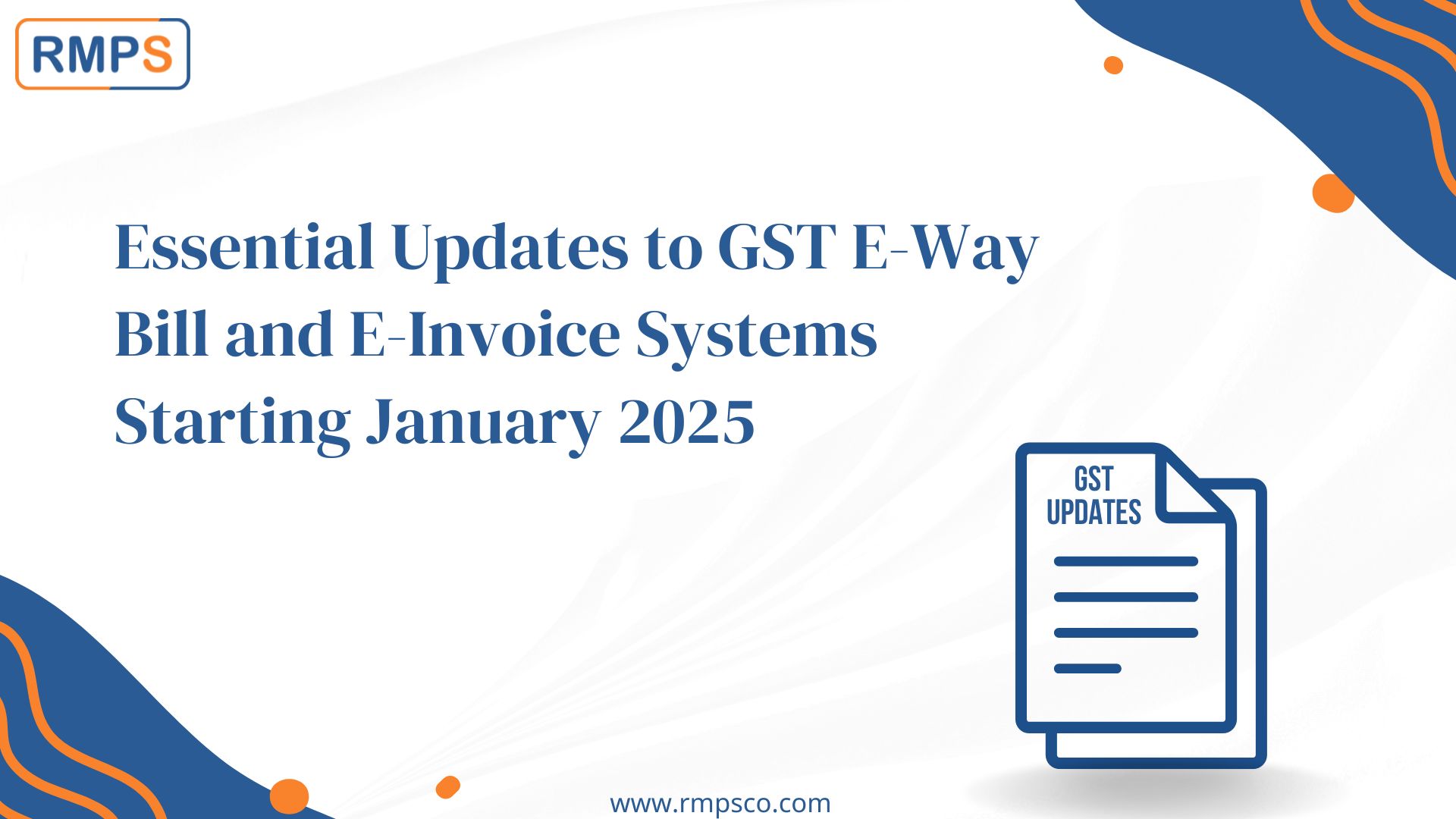
The Goods and Services Tax Network (GSTN) has unveiled significant updates to the E-Way Bill and E-Invoice systems, set to take effect on 1st January 2025. These updates aim to fortify compliance, enhance security, and integrate transportation systems seamlessly. Here’s everything you need to know to stay prepared and compliant.
1. Stricter Rules for Document Dates in E-Way Bill Generation
New Rule: E-Way Bills cannot be generated for documents dated more than 180 days before the generation date.
Details:
- For E-Way Bills generated on or after 1st January 2025, the supporting documents must be dated no earlier than 5th July 2024.
- Applies to:
- EWB generation alongside or by IRN.
- Part-A slips and consolidated E-Way Bills.
Key Takeaways:
- Taxpayers: Must align document preparation timelines to the 180-day validity limit.
- Transporters: Coordinate closely with businesses to avoid delays due to outdated documents.
- Warehouse Managers: Regularly review pending Part-B updates to maintain uninterrupted operations.
2. Capping of E-Way Bill Validity Extensions
New Rule: E-Way Bill extensions are capped at 360 days from the original generation date.
Details:
- If the gap between the generation date and extension request exceeds 360 days, the extension will be denied.
- Validity extensions are automatically adjusted to stay within the 360-day limit, irrespective of distance or other factors.
Example:
An E-Way Bill generated on 28th December 2023 and extended on 17th December 2024 (355 days later) will have its validity capped at 22nd December 2024, despite any remaining extension entitlement.
Key Takeaways:
- Businesses: Plan supply chain activities to adhere to the 360-day extension cap.
- Logistics Providers: Optimize transportation schedules to prevent disruptions caused by expired E-Way Bills.
3. Rollout of Mandatory Multi-Factor Authentication (MFA)
New Requirement: Multi-Factor Authentication (MFA) will become mandatory for accessing GST systems in phased stages.
Phased Implementation:
- From 1st January 2025: Mandatory for taxpayers with Annual Aggregate Turnover (AATO) over ₹20 Crores.
- From 1st February 2025: Applicable to taxpayers with AATO exceeding ₹5 Crores.
- From 1st April 2025: Compulsory for all taxpayers and users.
How It Works:
MFA requires users to log in using a username, password, and a One-Time Password (OTP) sent to their registered mobile number or app platforms like Sandes or NIC-GST Shield.
Key Takeaways:
- Taxpayers: Ensure registered mobile numbers are up to date and enable MFA early to avoid disruptions.
- Transporters: Activate MFA for seamless generation of E-Way Bills and E-Invoices.
4. Integration with Indian Railways for Transportation Documents
New Integration: E-Way Bill system now validates transport document numbers for goods moved via Indian Railways.
Details:
- Transport documents such as PWB (Parcel Way Bill) and RR (Rail Receipt) must follow specified formats.
- PWB: 10 digits.
- RR: 9 digits.
- Incorrect formats or mismatched details will trigger alerts or rejections.
Key Takeaways:
- Transporters: Ensure accurate entry of railway document details in the E-Way Bill system to avoid compliance issues.
- Businesses: Cross-verify transport documents to ensure smooth and timely goods movement.
System Enhancements: Error Codes and Alerts
GSTN has introduced new error codes and alerts to improve system accuracy:
- 820: Document date exceeds 180-day limit.
- 821: E-Way Bill validity surpasses the 360-day limit.
- 4043: E-Invoice API denies generation for documents older than 180 days.
- Railway Alerts: Notify users of incorrect formats or mismatched data, such as RR numbers.
How Businesses Should Prepare
With these changes, businesses must act swiftly to align their processes:
- Review Compliance Practices: Ensure document dates and E-Way Bill extensions comply with the new rules.
- Enable MFA: Secure your GST system access by activating Multi-Factor Authentication for all users.
- Verify Transport Documents: Validate railway document numbers to avoid disruptions in goods movement.
Final Thoughts
These updates signify a robust move toward enhancing security, compliance, and operational efficiency under the GST framework. By adopting these changes proactively, businesses can avoid potential disruptions and streamline their tax processes for 2025 and beyond.
LinkedIn Link : RMPS Profile
This article is only a knowledge-sharing initiative and is based on the Relevant Provisions as applicable and as per the information existing at the time of the preparation. In no event, RMPS & Co. or the Author or any other persons be liable for any direct and indirect result from this Article or any inadvertent omission of the provisions, update, etc if any.
Published on: January 6, 2025
